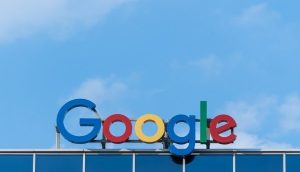Robin Hassan is the Canadian digital group head for Starcom. Here, she summarizes the two days of presentations and interactive sessions at the iMedia Connection Agency Summit this week in Phoenix, Arizona.
Day One: ‘How does the agency survive the Scienti-fied era of personalized media?’
The Agency Summit in Phoenix, Ariz., kicked off with a three speakers: Terence Kawaja, president and CEO of LUMA Partners; Cadreon’s CEO, Brendan Moorcroft; and Cathleen Ryan, the chief results officer at MEA Digital.
Kawaja, an investment banker and the creator of the often-used Display Advertising Technology Landscape chart, took the stage first. He confirmed that the infamous Bermuda Triangle is indeed the right analogy for the state of digital advertising today: ‘It’s mysterious, and it’s deadly,’ he said. ‘It is not, however, mythical: the media Bermuda Triangle is very, very real.’
His point of view was that with the level of complexity and overpopulation of supplier options is being fuelled by VC funding and will only keep growing but will eventually level off with merger and acquisitions activity. During this time, he said, agencies need to determine how they will handle this flux to add value for clients. He emphasized that the state of the landscape meant that it has become an age of ‘scientification’ for the advertising business and to not focus on that would be detrimental for advertising agencies.
Moorcroft and Ryan followed Kawaja, going head-to-head to present opposing viewpoints on his keynote. They covered this via debate-style segments and then passed it to the floor for 10-minute individual group discussions.
The first discussion point was, ‘Is this new ecosystem a land of opportunity or chaos?’ Moorcroft started the discussion by stating that our industry tends to make things significantly more complex than they need to be. He referred to the oft-cited point that ‘the burden of proof on digital agencies has been significantly greater than on our traditional counterparts.’
Ryan opposed this, arguing that the DATL chart indicated massive opportunity for agencies to differentiate themselves. ‘It’s not about strength or scale, it’s about how smart you are, and what you can do for your brands that no one else can,’ he said, recommending that agencies consider the chart and ask themselves, ‘What is my value proposition?’
The second talking point focused on identifying the key skills agencies require to thrive in this new ecosystem. Ryan insisted that in this time of ‘scientification,’ art is far more important and critical than understanding the scientific aspects. She specifically referred to ‘fluid intelligence’ and a healthy level of risk tolerance being the two most critical skills for agency survival. She also went on to explain that because of how dynamic the space has become, what we learn today might not be applicable in a year.
Moorcroft’s point of view was that there are three key components to the right agency mindset: strategic consulting, systems innovation and portfolio management. Being accountable and clear on recommendations to clients is critical to success, he said.
Finally, Kawaja closed with his answer: ‘It doesn’t matter if we’re talking about art or science, creative works. Any ad format, any media channel, good creative is going to deliver good results. It’s necessary but not sufficient. What will make agencies succeed in this new landscape is the ability to navigate through the complexity and distill the relevant solutions into the programs they create for their clients.’
Day two: ‘In the midst of the rush to understand all the algorithms and equations, have marketers forgotten about the consumer?’
Kirk McDonald, president of digital media at Time Inc., kicked off the keynote the following day. He agreed that the evolution of targeting, equations, data and research was very important. However, he said, the risk is that we’ve missed the essential element that moves the market: consumers. ‘We need to talk about building relationships with the ‘who’ of this discussion.’
McDonald argued that some of the most recent campaign successes – such as ‘Mac vs. PC’ and Old Spice – were successful because they connected with real human experiences. McDonald also cautioned he feared that our industry could be headed the direction that real estate and FI did south of the border.
Specifically, he reminded the audience how these two industries became overpopulated with genius mathematicians who built complicated algorithms that defied most industry veterans’ understanding. He cautioned that the impact was catastrophic because they ‘lost sight of the fact that they were dealing with real people, not just numbers.’
‘Data and algorithms are useful tools that must be a part of media moving forward, but they are tools to enhance what we do,’ he said. ‘The value in them is how humans use them.’
The second warning McDonald had for agencies was that focusing too much on the science of the ad space often limits us to focus on the bottom of the sales funnel: the purchase and the highly debated click metric. He also challenged agencies to rethink how we evaluate ROI and to re-establish the role of storytelling in our digital advertising tool kit. The balance will be to think about short term (sales, leads) and long term, which means storytelling that helps build equity and brand health.
McDonald closed with this comment to agencies: ‘Differentiate yourselves with rich consumer insights and your ability to partner with other media companies to find the right alignment to give clients what they want, and the assurance that you will be there to meet clients’ needs, whatever they are.’
In addition to these two keynotes, there were dozens of presentations covering a wide range of topics from the validity of the click metric, social media ROI to privacy self regulation. There was even a point where yours truly was asked to the podium to share a ‘first response’ on some Pew consumer research.
Overall, the key themes that resonate with me as we start rolling out our plans for 2011 are: balancing science with art, inspiring the right talent and a deeper focus on storytelling, both pre- and post-campaign.























